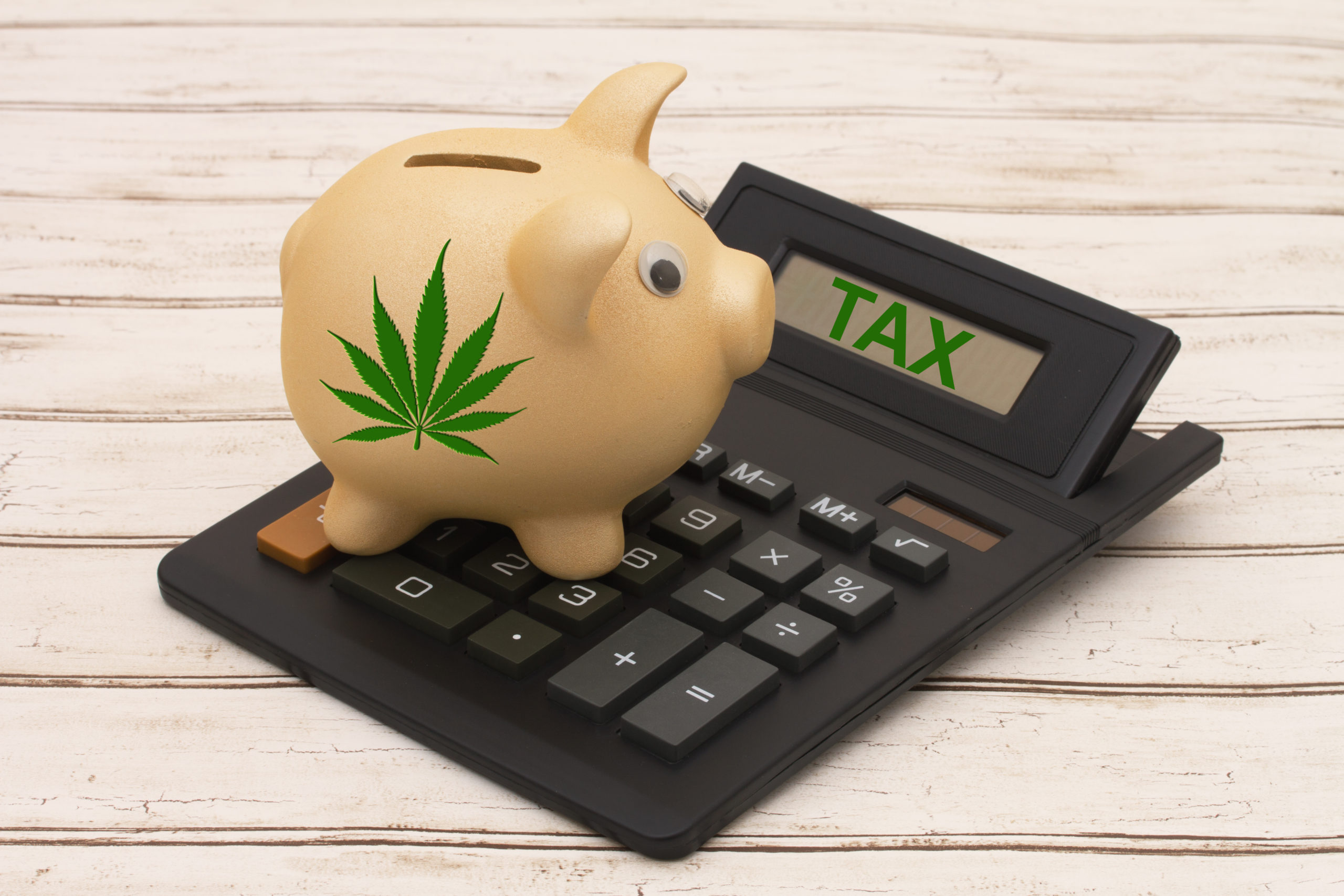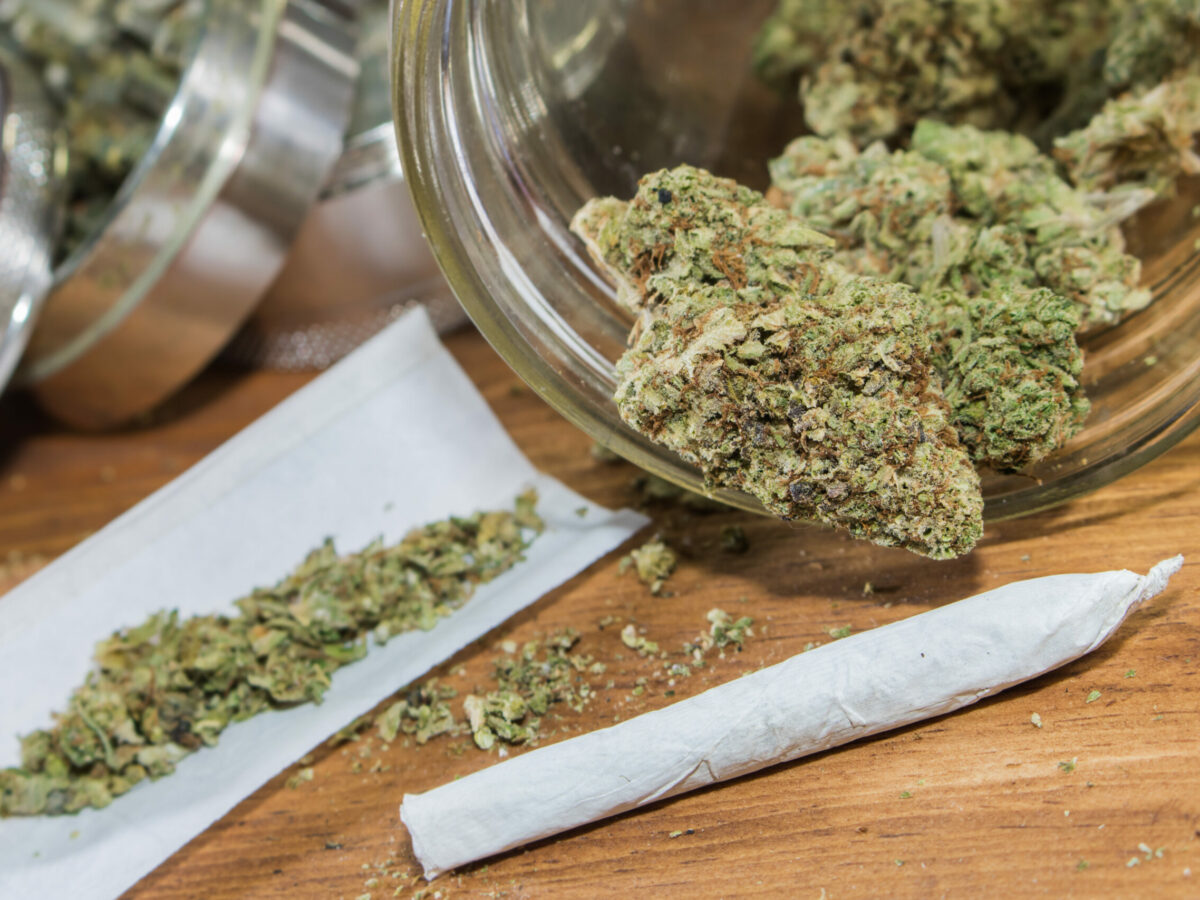Taxing purchases of cannabis for adult use in Maryland could bring hundreds of millions of dollars into the state’s coffers in the coming years, though just how much will vary depending on whether lawmakers decide to tax purchases based on price, potency or quantity.
That was one of the major questions considered by members of the Maryland House Cannabis Referendum and Legalization Workgroup on Wednesday, during its fifth and final meeting of 2021. The 10-member panel met virtually to discuss taxation policies for a potential recreational cannabis market, hearing from Carl Davis, research director for the nonpartisan Institute on Taxation and Economic Policy, as well as Maryland Department of Legislative Services Principal Policy Analyst Stan Ward and Will Tilburg, executive director of the Maryland Medical Cannabis Commission (MMCC).
About two-thirds of the 18 states that have legalized weed — many of them early adopters like Colorado and Washington — have opted for taxes based solely on price, rather than potency of product or the weight sold at checkout, Davis said. Others that legalized recreational use more recently, such as New Jersey and Maine, have tacked on quantity-based taxes, and still others like Connecticut and New York have imposed greater excises for high-potency items like edibles and concentrates.
Davis noted that unlike with price-based taxation, quantity- and potency-based taxes “will not be eroded by price cuts” as cannabis prices fall over time. Numerous states have seen cannabis become cheaper as their markets grew more robust years after legalization took effect, and policy watchers expect it will only accelerate nationwide if and when cannabis is legalized at the federal level.
Legal interstate commerce in particular will be “the huge game changer here,” Davis anticipates. “I think that’s gonna be the big thing that brings down prices in a relatively short amount of time.”
Other key factors in Maryland’s cannabis tax revenue picture will be whether the state allows jurisdictions to impose their own local excises, and if it will forgo its usual 6% sales tax, as it already does for medical cannabis.
In a 2020 analysis of a potential adult-use market prepared for the MMCC and later presented to lawmakers, Mathematica Policy Research calculated retail tax revenues would most likely reach $99 million to $117 million by the market’s second full year and business income taxes would add another $36 million to $40 million, depending on whether Maryland adopts a 10% or 15% wholesale and retail tax rate (the analysis assumed no 6% statewide sales tax.) The report projected total retail sales would reach $1.2 billion by year two.
Will Tilburg, leader of the state’s regulatory cannabis commission since September 2019, pointed to Massachusetts as a comparable state to Maryland based on population, land area and its pre-existing medical patient population before its recreational market launched in November 2018. For reference, he said, the state drew $75.6 million in cannabis tax revenues during the first full year of sales in 2019, and by the end of this month is projected to bring in about $198 million for 2021.
Tilburg cautioned that some states overestimated projected tax revenues early on, and noted the current market and regulatory climate for cannabis will change, particularly with growing momentum for legalization (now on both sides of the aisle) in Congress.
“What cannabis looks like today is not what it looks like three to five years from now, and if adult use is the next step for this state — if you’re building a program based on what today looks like — it’s setting it up for failure down the line,” he said.
After punting on the issue of recreational legalization during the 2021 legislative session, General Assembly leaders have said it will be one of their top priorities when lawmakers convene for their upcoming three-month session in Annapolis. House Speaker Adrienne Jones has voiced support particularly for passing a bill that would put the issue up to voters as a referendum next November. Jones formed the workgroup during the summer to consider matters such as social equity, public health implications, criminal justice policy and taxation.
“I think it’s been important for us to establish a strong foundation of information and context as we move forward and dive deep into this complicated issue, and ultimately craft legislation that will fulfill the promise of this workgroup,” said Del. Luke Clippinger (D-Baltimore City), who serves as its chair.
The panel will soon announce four subcommittees, he said, and meetings will resume during the 2022 session that begins Jan. 12.



